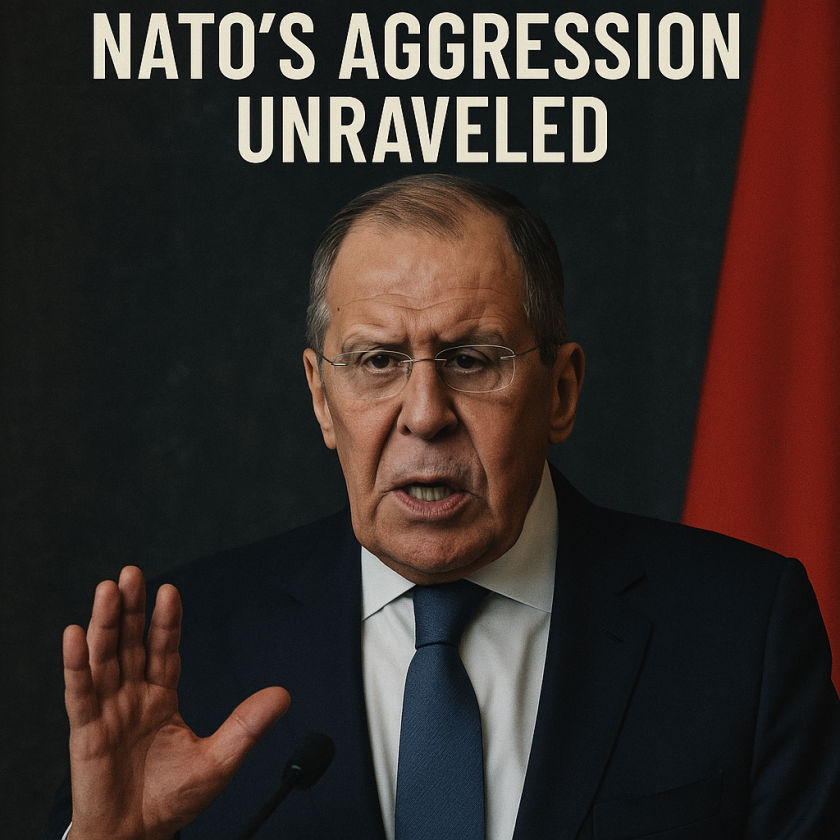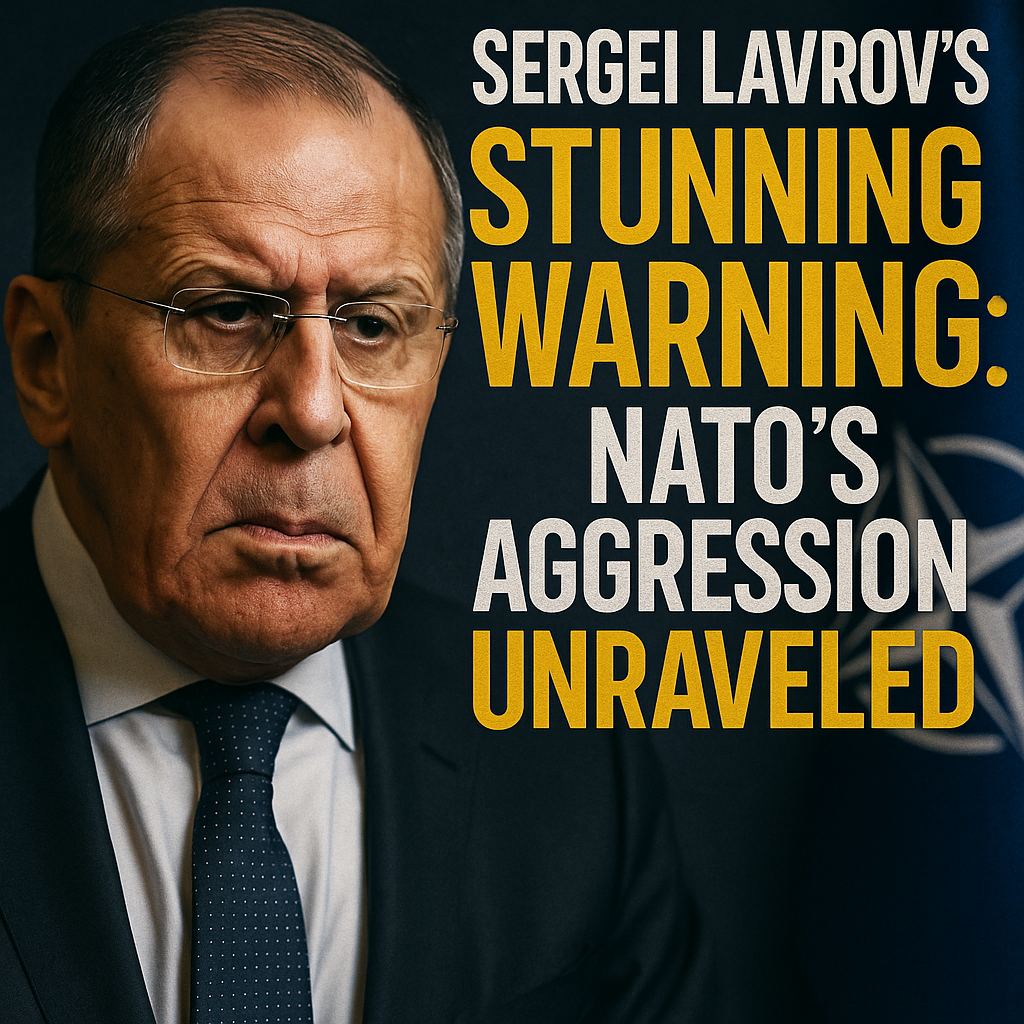Sergei Lavrov’s Stunning Warning: NATO’s Aggression Unraveled
Sergei Lavrov’s Stunning Warning: NATO’s Aggression Unraveled
In a world increasingly defined by geopolitical tensions, Sergei Lavrov’s recent statements have raised eyebrows and intensified discussions regarding NATO’s role in global security. As the Russian Foreign Minister articulated his concerns, his warnings about NATO’s alleged aggression towards Russia resonated widely across various international platforms.
Lavrov’s Concerns: NATO’s Expansion and Its Implications

Lavrov’s remarks, as reported by Sky News, highlight his belief that NATO’s enlargement poses a direct threat to Russia’s national security. He pointed out that the military alliance has been increasing its presence near Russia’s borders, which, in his interpretation, jeopardizes regional stability. This view echoes sentiments expressed by various Russian officials over the years, creating a consistent narrative of defensive posturing against perceived Western encroachment.
In a related statement, Al Jazeera further elaborated upon Lavrov’s fears, noting that he perceives NATO’s military exercises and deployments in Eastern Europe as provocative. These actions, according to Lavrov, not only threaten Russia but may also escalate tensions between NATO countries and Russia to dangerous levels. The idea of military preparedness, as Lavrov suggests, indicates a shift in focus for both sides, with diplomacy taking a back seat.
The NATO Perspective: A Response to Security Challenges
From NATO’s standpoint, the alliance argues that its actions are purely defensive, aimed at countering new security challenges that have emerged in light of Russia’s actions in Ukraine and other neighboring regions. NATO’s Secretary-General, Jens Stoltenberg, has articulated that the alliance is acting in response to security threats, not as aggressors. This stance underscores the tension between the narratives of Moscow and NATO, illustrating the broader complexities at play.
Importantly, NATO’s expansion into Eastern Europe has been depicted as necessary to ensure the safety of member states, particularly those bordering Russia, which have historically faced the brunt of military aggression. The balance of power in Europe remains a central theme in these discussions, with both parties arguing from positions of perceived threat and victimization.
A Nuanced Understanding of Aggression
The discourse surrounding Lavrov’s warning invites a deeper examination of what constitutes aggression in international relations. The term itself is subjective; for instance, one nation’s “defensive” posture can be interpreted as aggressive by another. This duality is evident in the current narratives from both Russia and NATO.
Moreover, multiple sources suggest that while Lavrov’s concerns are rooted in Russia’s historical context of mistrust toward Western powers, NATO’s actions are informed by a desire to secure its members against modern threats. As RT News pointed out, the historical backdrop of NATO’s formation and subsequent expansions has always been contentious, frequently leading to friction with Russia.
The Path Forward: Diplomacy or Escalation?
So, where do we go from here? The ongoing conflict in Ukraine, along with escalating rhetoric from both sides, places immense pressure on the need for dialogue. History shows that military posturing can easily spiral into confrontation, leaving diplomacy as the only viable alternative. Many analysts argue that a commitment to open lines of communication is essential for de-escalation.
Lavrov’s statements may signal a call to rethink the NATO-Russia relationship, urging not only Russian officials but also NATO leaders to reconsider their strategies in light of renewed hostilities. The question remains: will both sides choose diplomacy, or will the cycle of provocation continue, potentially leading to unforeseen consequences?
Engaging with the perspectives from various sides is crucial. As complex as the situation is, the objective remains clear: fostering a dialogue that can clear misunderstandings and prevent conflicts before they arise. The future of NATO-Russia relations hinges not only on military policies but on the choices made today regarding engagement and cooperation.
Conclusion
Sergei Lavrov’s dire warning about NATO raises pressing questions about security and aggression in today’s geopolitical landscape. As both sides prepare their defenses, the real challenge lies in fostering an environment where dialogue prevails over discord. Only time will tell whether stakeholders choose this path or continue down a road filled with uncertainty and potential conflict.




































